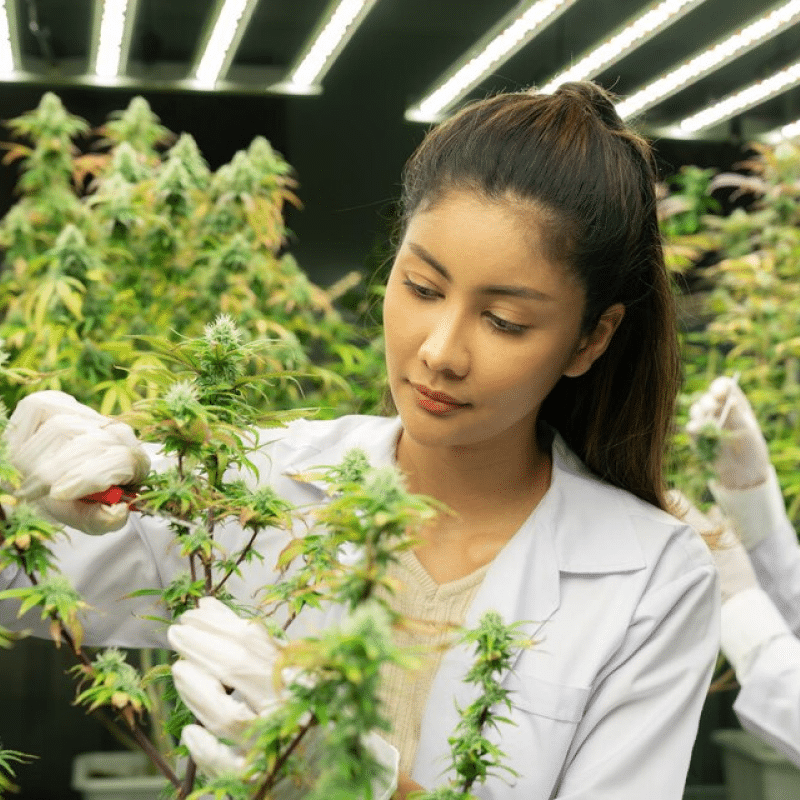The Economic Impact of Cannabis in Michigan
This document explores the significant economic effects of cannabis legalization in Michigan, detailing its impact on job creation, state revenue, and the growth of related industries. It highlights the transformation of the state’s social landscape and the opportunities emerging in the cannabis market, including tourism and real estate. As the industry continues to evolve, its long-term influence on Michigan’s economy remains a key area of interest.

Ever since the legalization of medical cannabis in 2008 and adult-use cannabis in 2018, the cannabis industry in Michigan has witnessed an economic boost.
Soon after legal sales of adult-use marijuana rolled out in 2019 for the general public, Michigan saw a huge change in the state’s social landscape and a significant economic influence.
The rise of legal sales of cannabis has introduced several opportunities for businesses and job seekers. Michigan’s dynamic cannabis industry is poised to become a leading billion-dollar market just bested by California by the end of 2023.
The Growth of the Cannabis Industry in Michigan
Cannabis legalization in Michigan took a significant step forward in 2018 when voters approved Proposal 1, also known as the Michigan Regulation and Taxation of Marihuana Act.
Michigan has over 500 licensed medical marijuana stores and 470 approved recreational ones. Despite this large number, the demand for marijuana is still increasing.
Based on average monthly sales, the market will make less than $3 billion by the end of 2023 from selling various products, such as flowers, pre-rolls, edibles, vaping cartridges, concentrates, and more.
In 2022, sales in Michigan reached $2.3 billion. In July this year, sales of $276 million were recorded, with $270 million coming from recreational use.
According to a CBT market analysis, Michigan ranks the highest among adult-use states in the nation regarding cannabis demand. The average per capita monthly expenditure on cannabis in Michigan is $23.42 in 2023, more than three times higher than California’s.
While the monthly sales and price trends are expected to continue rising, the opening of 30 new retail locations in Detroit suggests that the actual amount will likely be higher than $3 billion.
Tax Revenue and State Budget
Compared to other states, lenient regulations were one of the primary reasons the cannabis market saw early success in Michigan.
In Michigan, cannabis sales are subject to a 6% state sales tax and an excise tax of 10%. The legal monthly adult sales in Michigan, as of December 2022, amounted to 208.3 million USD, bested only by California.
Michigan’s Marihuana Regulation Fund distributed 198.4 million USD toward public programs such as education, public health, and infrastructure for the fiscal year 2022.
Moreover, the cannabis industry has also positively impacted the national level. The revenue generated from cannabis sales has contributed to the overall growth of the national economy.
As per Statista research, the national revenue from the Cannabis market is expected to reach 33.88bn USD in 2023. From 2023 to 2028, the marker revenue is projected to grow at an annual growth rate of 14.66%, resulting in a 67.15bn USD market by 2028.
Cannabis Tourism & Michigan's Local Economy
Cannabis tourism is a real thing in Michigan. It became a popular trend when people from neighboring states and beyond started visiting Michigan to experience its recreational cannabis offerings and explore the state’s beautiful natural scenery.
Visitors spend money on cannabis products, hotels, restaurants, and other attractions, boosting the state’s tourism industry. Michigan’s cannabis industry has also responded to the growing demand for cannabis tourism by offering lodges and lounges for visitors.
These tours range from educational cannabis farm tours to cannabis cooking classes, where visitors can learn to cook with cannabis-infused ingredients.
Businesses like Michigan Cannabis Trail promote cannabis tourism by highlighting cannabis-friendly hotels, dispensaries, and other companies across the state.
Cannabis tourism has contributed to skyrocketing Michigan’s economy, and with the state’s growing cannabis industry, it’s likely to continue attracting visitors.
Real Estate and Property Values
The legalization of cannabis in Michigan also significantly impacts the real estate market and property values.
With the growing demand for cultivation, processing, and retail properties, the cannabis industry has created a new market for real estate in the state. As more businesses enter the cannabis market, property demand will likely increase.
This spike in demand will increase property values in some areas, benefiting property owners and local municipalities. The legalization of cannabis has also created new opportunities for real estate investors.
Investors can now purchase properties specifically zoned for cannabis cultivation or processing, which can yield higher returns than traditional real estate investments.
Wrapping Up
The economic impact of cannabis in Michigan has been substantial, contributing to state revenues, job creation, and economic growth.
It’s important to remember that the cannabis industry is still evolving, and the full extent of its economic influence will unfold in the years to come.
So, if you’re a business owner, consider investing in comprehensive cannabis insurance and stay one step ahead as you navigate this complex market.




